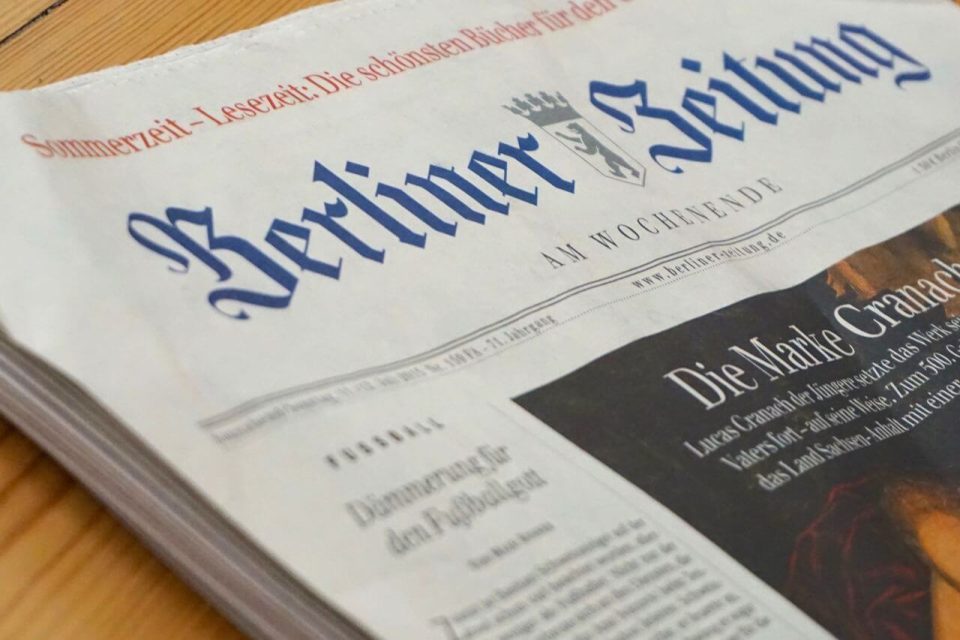
Starting From Zero: Pronunciation & The German Alphabet Demystified

Starting From Zero: Pronunciation & The German Alphabet Demystified
Many people assume that German pronunciation is difficult. Some of them would even want to learn German but don’t do it because they find it too intimidating. And we can’t blame them. The internet is loaded with videos of people exaggerating the German pronunciation.
However, German pronunciation being difficult is just a myth.Oh ja, you read that right. German is actually one of the few languages where pronunciation makes sense. Once you know the rules, all you have to do is flex those pronunciation muscles and speak like a true German. It’s really not as hard as you think. Let’s break the myth together.
The basics of the German alphabet
We’ll naturally start with the basics. Much like English, the German alphabet consists of 26 standard letters. In addition to that, it also features the letter ß – known as the German ligature – and umlauted forms of three vowels: ä, ö and ü. In total,das Alphabet has 8 vowels and 22 consonants.
Considering you’re already familiar with all the other letters, let’s continue by taking a closer look at these four special letters: ß, ä, ö and ü.
ß also known as ‘sharp S’, ‘eszett’ or ‘scharfes S’
Although it looks different from everything you’ve ever seen in English, ß shouldn’t intimidate you. Vaguely resembling a capital ‘B’,the letter ß is pronounced like a sharp S (like the ‘s’ in ‘see’) – hence its name ‘eszett’ or ‘scharfes S’.
German is the only language that uses ß and if the character is unavailable, it can be replaced with ⟨ss⟩. In fact, in Swiss Standard German (used in Switzerland and Liechtenstein), the letter was completed replaced by ⟨ss⟩ sometime in the 20th century.
Eszett not having a capitalized version sparked debates for a long time, so the Council for German Orthography officially adopted a capital in 2017. The capital of ß is ẞ.
German umlauts: ä, ö, ü
While highly representative for the German language, the German umlauts are ‘guilty’ of making the most uncommon sounds to English speakers.
To put it simply, the umlaut – represented by the two dots over a, o and u – indicates that an ‘hidden e’ will follow the vowel in pronunciation:
- ä will be pronounced as ‘ae’ ;
- ö will be pronounced as ‘oe’ ;
- ü will be pronounced as ‘ue’ .
To give you a better idea of the pronunciation, remember that ä somehow resembles the ‘ai’ sound in ‘air’ and ö is similar to the ‘e’ in ‘her’ or the famous French ‘eu’. With ü things are a little bit easier, because thanks to Müller, you probably already know how to pronounce ü.
Now round off your lips and start practicing!

German pronunciation guide for single letters
Now that we’ve settled the matters with ß, ä, ö and ü, it’s time to move on to more familiar letters and see how their pronunciation differs from English.
Because this is a beginner’s guide on German pronunciation, we won’t overwhelm you with diphthongs or other such ‘scary’ things that might steal your focus. We’ll continue by just simply explaining how to pronounce single letters or certain letter combinations.
Sounds good? Let’s dive right in. Here’s how to pronounce the German letters that sound different from English:
- R – Much like the notorious French r , the German r is one of the most distinctive sounds of the language. Many people describe its pronunciation like a gurgling sound. However, this is applicable only for the R s placed at the beginning of a word. Anywhere else, the r sounds more like an ‘ah’ or ‘uh’. Now try to say Radio like a German.
- W – The German w sounds like the English ‘v’. Now you know vy some Germans vill talk like zis. Try it yourself by saying was? (‘what?’).
- V – Sounds like the English ‘f’. This is why Vater sounds a lot like ‘father’.
- J – Oh ja, you already know this one! The German j is pronounced like the English ‘y’.
- E – If you see an e at the end of a German word, make sure to pronounce it like this: ‘eh’. Come on! Loud and clear: Katze (‘cat’)!
German pronunciation guide for letter combinations
Just a few more examples and you’ll soon be ready to speak like a German! Let’s see how you should pronounce certain letter combinations in German:
- CH – Don’t laugh, but this is best described as a cat-hissing sound. Now try saying Ich (‘I’) or mich (‘my’). However, don’t forget that the sound is usually softer after a consonant.
- EI – Sounds a lot like the English ‘eye’. Try it by saying einladen (‘to invite’).
- IE – You should pronounce this one like a long ‘e’: lieben (‘to love’).
- PF – Make sure to quickly pronounce both letters as close together as possible. For example: Pfeffer (‘pepper’).
- SP/ST – In both cases you should say sh (exactly like the English ‘sh’) followed by p or t . Thus, sp will be pronounced shp and st will be pronounced sht . For example:sprechen (‘speak’) or Strauss as in musician Johann Strauss.
- KN – Although it may sound weird to you as an English speaker, make sure to pronounce both letters: Knabe (‘boy’ or ‘lad’).
- TH – Sounds like ‘t’. Practice by saying Theorie like this: TAY-oh-ree.
- TSCH – You already know this one because… Deutsch . As you can see, it is similar to the ‘ch’ in ‘couch’ or ‘check’.
- EU – Sounds like ‘oy’ in English.
- Z – Don’t pronounce this like the English ‘z’. Go instead for the ‘ts’ sound in ‘cats’. Try it: Zeitung (‘newspaper’).
Did you recognize_ze rules_ in this example?
How to pronounce long German words
Ja, the German language is famous for its very long words, but once again – this shouldn’t intimidate you. Most German words are, in fact, compounds.
So what exactly is a ‘compound’? When two words (or sometimes even more) are used together to create a new meaning, a compound is formed. In English, we use hyphens to make everything easier to read, but German just puts everything tight together.Gute Arbeit, Deutsch! (‘Nice work, German!’) For example,unabhängigkeitserklärungen translates to ‘declarations of independence’ and_nahrungsmittelunverträglichkeit_ may look impossible to remember or pronounce, but it actually means ‘food intolerance’.
Now, everything you have to do to successfully pronounce these long words is to mentally separate the compound word. Break up the very long word into shorter words and pronounce them using the rules you already know. You may sound funny in the beginning, but in time, it will get easier and easier to recognize and pronounce long German words.
Tschüss!
How to speak like a German fast
Do you want to speak German like a fluent speaker? Get Mondly, the award-winning language app that will help you master German pronunciation from day 1.
German pronunciation can be really tricky to learn if you don’t actively live in a German-speaking country. But with Mondly, you’ll have access to a fast and highly efficient learning method that allows you to learn German naturally with the following:
- practical topics;
- hands-on, interactive language lessons;
- intelligent suggestions and instant feedback on pronunciation;
- crystal-clear audios of fluent speakers;
- real-life conversations and so much more.
Start using Mondly for free on your computer or download the app and learn German anytime, anywhere.
Also read:
- [New] Adopting Inshot The Path to Improved Laptop Edits for 2024
- [Updated] 2024 Approved Mastering Video Grabber Software in Windows 11
- [Updated] Capture the Moment Innovative Approaches to Live Video Download
- [Updated] Connecting the Dots Televisions Meet Facebook Lives for 2024
- 6 Exciting Reasons to Learn Arabic
- A Love for Words: The Romance Family
- Access Restored: Origin's Web Authentication Service Operational Again
- Best iOS Slideshow Software From X to IOS13 for 2024
- Beyond Fluency: Tackling the World’s Difficult Linguistics
- Catalan in Flashes: Mastering Each Day
- Easter Broadcast: Hearing the World Speak
- Effektivste Methode Zum Hochladen Von Streaming-Videodateien Auf Ihren Mac
- Effortless Polyglotism: Easiest World's Languages Ranking
- Top-Rated macOS Applications - Expert Picks From ZDNet
- VR Babel Fish: Transform Flingish to Fluency
- Title: Starting From Zero: Pronunciation & The German Alphabet Demystified
- Author: Christopher
- Created at : 2024-10-29 03:50:04
- Updated at : 2024-11-04 23:51:23
- Link: https://mondly-stories.techidaily.com/starting-from-zero-pronunciation-and-the-german-alphabet-demystified/
- License: This work is licensed under CC BY-NC-SA 4.0.